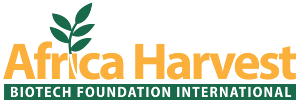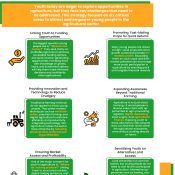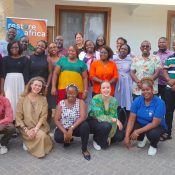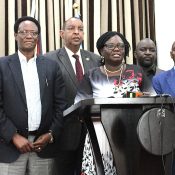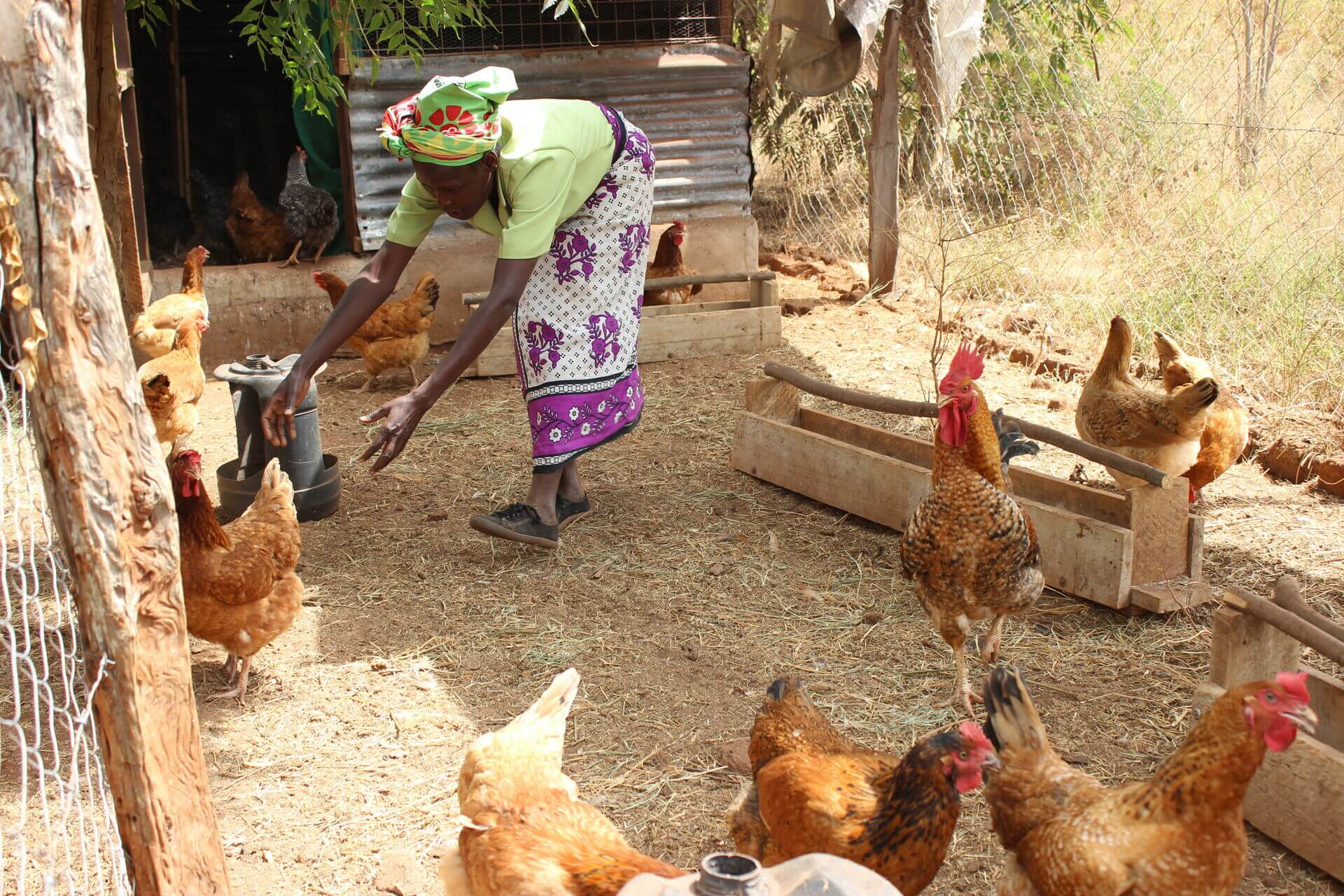
Thriving Amidst Adversity – One Woman’s Story of Resilience
The Enhancing Opportunities for Women Enterprises (EOWE) project that Africa Harvest implemented in Kitui County, in eastern Kenya has a wealth of success stories of women whose lives have been transformed from meagre subsistence to thriving farming ventures. Thus enabling women in thriving amidst adversity.
Francisca Loko Mwangangi, a 50-year old mother of four from Ndumoni in Kitui County, and a beneficiary of the EOWE project says, “Since Africa Harvest came into this County, women are no longer as poor as they used to be. We have been taught how to farm for profit.”
Francisca was one of the many women that received training on good agronomic practices, how to aggregate and value addition. They were also given access to market-related information and were linked with microfinancing institutions and market outlets to which they could sell their produce.
Says Francisca who has a four acre farm: “I had been growing sorghum and green grams on a small scale before Africa Harvest came in. The yields were never good. Sometimes I only harvested a sack of sorghum from one acre and two sacks of green grams from another acre.”
Africa Harvest organised knowledge- and information-sharing field tours for the women group members to other areas covered by the EOWE project in Makueni County, specifically to Malili and Kasieku Sub-Counties.
For Francisca and the other women in her region, transformation started when they applied the knowledge they had gained from the training and from the experiences of other farmers in similar contexts.
“I no longer struggle. My family and others that have been trained on the improved farming methods have become role models in this area. We teach other farmers to adopt the best practices that we have been taught by Africa Harvest,” says Francisca
“I started using appropriate fertilizer on my sorghum and green gram fields and making use of my entire four acre farm since the yields were promising,” she says.
From the four acres under sorghum, Francisca now harvests 12 sacks of 100 kg each where previously she used to reap just about two sacks. A sack, when demand is high, can fetch up to Ksh 5,000 up from about Ksh1,500 when it is low.
After the harvest, at least 75 women from Kwa Vonza area aggregate their sorghum in a common storage facility at Kyamathyaka market.
“We use pesticides to ensure good preservation and store in airtight synthetic bags as we were taught during the training. We aggregate in February when prices are low and sell in May when there is no harvest and prices are significantly higher,” she says.
Each of the 75 members in her women group harvests 8 sacks on average, which means they can aggregate 600 sacks. With each bag retailing at Ksh 5,000 each, the group’s total earnings are estimated at Ksh 6 million since the crop is harvested twice a year.
Unga Feeds has been a regular buyer of the group’s sorghum, which it uses in the manufacture of animal feeds. Francisca adds that East Africa Breweries Ltd (EABL) has been on the ground exploring prospects of entering into a contract with the women groups in the region.
She intercrops sorghum with green grams on the same field, and now harvests 8 sacks of 100 kg each, up from the 2 sacks that she used to get previously. Green grams retail for Ksh 80 per kg when the demand is high. Farmers plant the crop twice a year to maximise on returns.
Francisca says there is no need to aggregate green grams since the demand is usually high during harvest time. Indeed, during the period under review, she managed to sell 8 sacks at Ksh 8,000 each, making approximately Ksh 64,000 in the first season and a similar amount in the second. She is among the top harvesters in the women’s group, driven to produce in response to the ready demand from Kenyatta University’s local campus at Seku.
“I no longer struggle. My family and others who have been trained on improved farming methods have become role models in this area. We teach other farmers to adopt best practices that we have been taught by Africa Harvest,” beams Francisca.
Francisca also plants pigeon peas, which traditionally do well in Kitui County. She is grateful to Africa Harvest and its partners for implementing this project in her locale. “Because of the knowledge I now have, I stopped planting maize, which doesn’t do well in this area. Instead, I use the money I get from these other crops to buy maize for my household.”
From the training she received on poultry farming under the EOWE project, the enterprising Francisca has become one of the top chicken farmers in her locality, keeping mainly Kenbro and Kuroiler breeds. Her 400 birds provide her with a wide range of products including eggs, day-old chicks and meat, which she sells in the local market, to restaurants and East Meat, a supplier with outlets in Kitui and Makueni Counties.
“I sell mature birds to East Meat at Ksh 460 per kilogram. Big cockerels can weigh up to 3 kg, therefore fetching Ksh 1,380,” she says. East Meat buys approx. 500 birds daily, therefore providing a ready market for the 75 members of the women’s group.
In 2017, Francisca sold 70 mature birds for meat, 400 fertilized eggs and 200 chicks. She sells fertilized eggs at Ksh 25 each; a day-old chick at Ksh 100; and 2-week-old chicks at Ksh 300.
“I no longer strain to educate my children: one is at the university, another is at a tertiary college and two are in secondary school,” she says. Her husband, Dominic Mwangangi, who works as a welder in Nairobi praises her farming ventures, which now supplement the income he earns.
